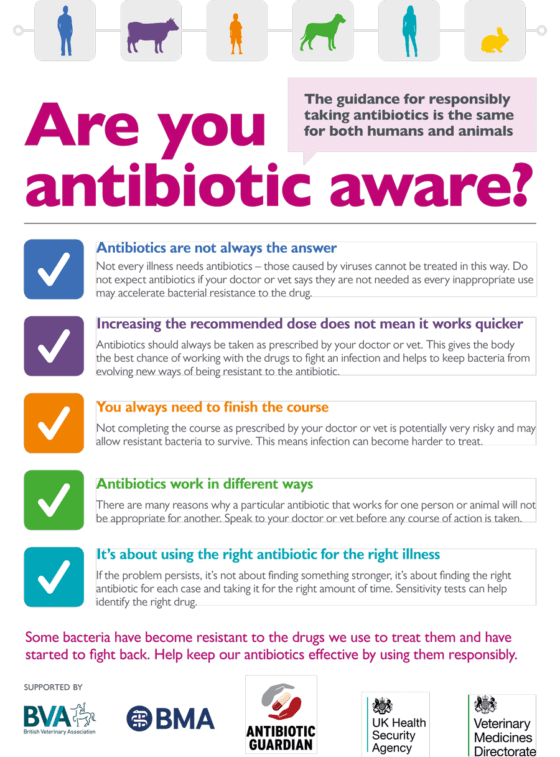23 Nov 2021
November’s Voice of the Veterinary Profession Survey shows 92% of those surveyed were concerned about the potential effects of antimicrobial resistance.

Image © Thomas Picard / Freeimages.
An overwhelming majority of vets across the UK are worried about their ability to treat infections in animals, a new study from the BVA has confirmed.
November’s Voice of the Veterinary Profession Survey has found that 92% of those surveyed were concerned about the potential effects of antimicrobial resistance (AMR).
The study also found that 99% of vets say they have seen clients come to appointments with an expectation that they’ll be given antibiotics to treat their pets.
More than three quarters of vets in companion animal practice (76%) also said that there is a general lack of understanding about the issue among clients.
BVA president Justine Shotton said: “Antibiotics are a critical tool in our ability to treat both humans and animals effectively. Worryingly, as in human medicine, some bacteria no longer respond to the antibiotics we use to treat pets.
“We know that owners love their pets and may often think that antibiotics are the best answer to treat their beloved companion, but this is not always the case. We need pet owners to help us keep antibiotics working against serious and potentially life-threatening infections now and in the future.”
The BVA has issued a series of tips for pet owners aimed at encouraging them to get involved in tackling AMR.
The tips include reiterating to owners that in some cases antibiotics may not always be necessary, that if a course of antibiotics is started it must be finished and emphasising prevention over treatment.
Dr Shotton added: “Don’t automatically expect antibiotics when your pet is unwell and always follow your vet’s instructions in giving the recommended dose at the right time and for the duration prescribed.
“Human health and animal health are closely linked. Take a look at our top tips and one health poster to see what steps you can take as a pet owner to use antibiotics responsibly.”
